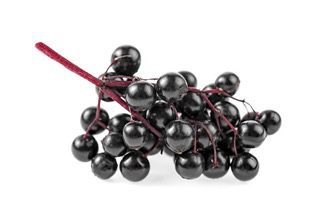

Although ripe elderberries are safe for dogs to eat, other parts of the elderberry plant, such as the leaves, roots, and stems, are toxic to dogs. Unripe elderberries also contain high levels of cyanide, making them poisonous for dogs.
Ripe elderberries are a rich source of vitamins C and A, iron, iodine, and bioflavonoids. These nutrients can help boost your dog’s immune system and protect against diseases.
The leaves, stems, roots, and unripe berries of the elderberry plant are poisonous to dogs due to their high cyanide content. While consuming a few ripe elderberries is unlikely to cause harm, excessive consumption may lead to nausea and digestive issues.
If you choose to feed your dog ripe elderberries, do so in moderation. One or two berries should be sufficient, and it’s best to monitor your dog for any signs of discomfort or illness. If you notice any adverse effects, contact your veterinarian immediately.
Elderberry, also known as Sambucus, is a fruit that can be consumed by dogs in its ripe form, but not in its leaves, roots, and stems, which are toxic to them. This fruit is native to the Northern Hemisphere and is widely used in traditional medicine for its anti-inflammatory and antioxidant properties. Ripe elderberries are a good source of vitamins A and C, iron, iodine, and bioflavonoids, which can boost your dog's immune system and protect them from diseases. However, beware that excessive consumption may lead to nausea and digestive issues.
If you want to give your dog elderberries, do so in moderation. One or two berries should be enough, and it's crucial to keep an eye on how your dog responds to it. If you notice any adverse effects, such as vomiting, diarrhea, or lethargy, reach out to your vet immediately. As for affordability and access, it depends on where you live and the season. But usually, elderberries can be found in markets and health food stores.
Instead of elderberries, you can give your pet some other fruits like blueberries or strawberries that are also rich in vitamins and antioxidants. Or you may opt for some vegetables like sweet potatoes or carrots that provide essential nutrients and are excellent for dogs who need to lose weight or have digestive problems.
Have you ever given elderberries to your dog? How did they react? Remember to always consult with your veterinarian before introducing any new food to your dog's diet.
Give your furry friend some love from us!